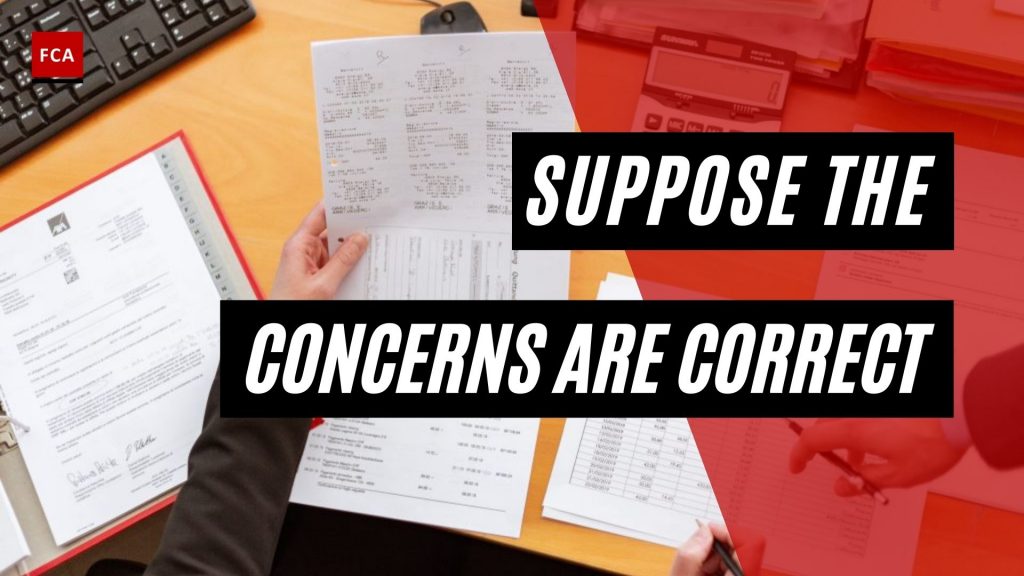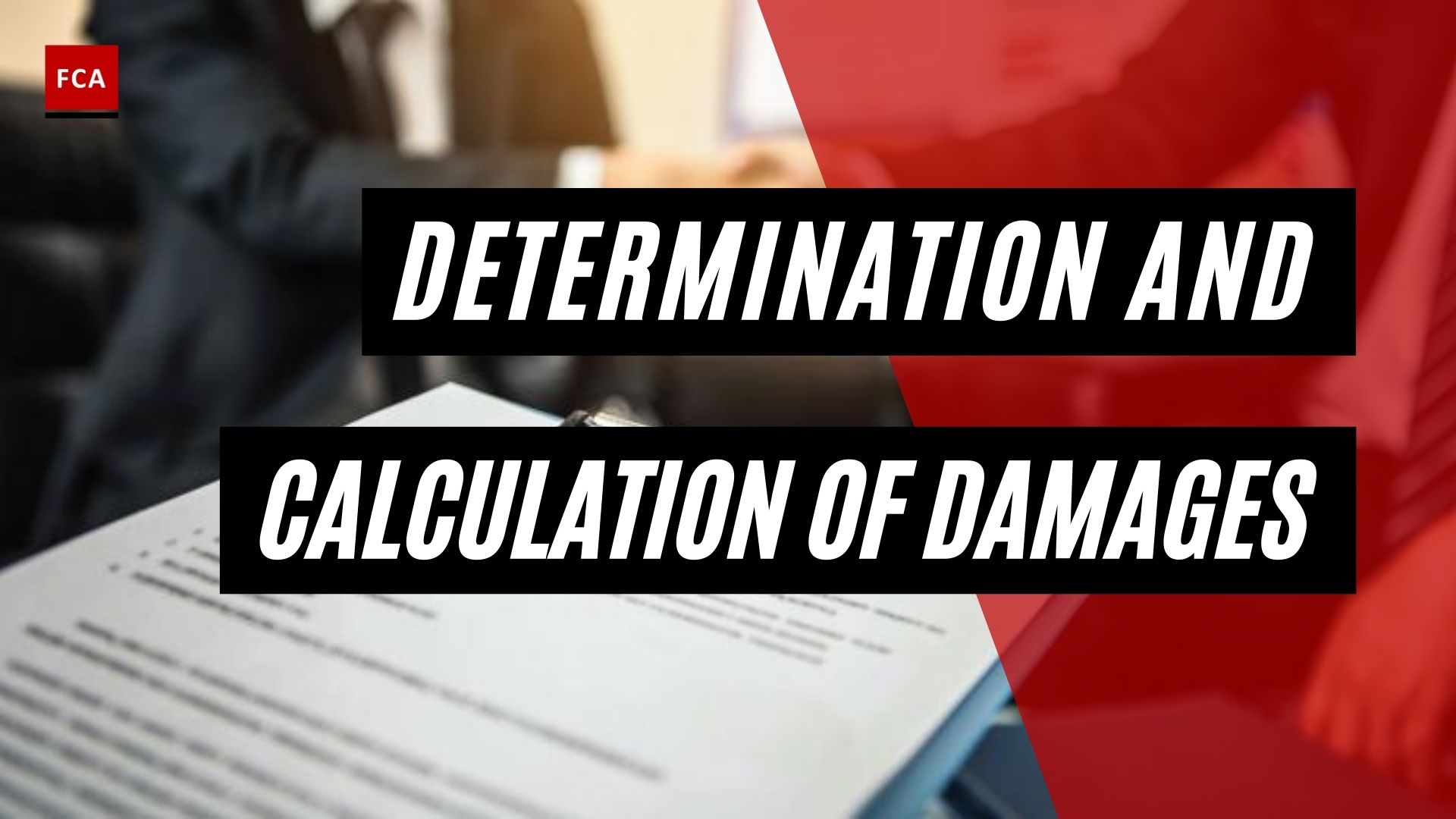Suppose the concerns are correct. Complaints and allegations may arrive via different channels with varying amounts of detail. Irrespective of the source, all the complaints and accusations should be evaluated before making any decisions about how to proceed with the information. This is one of the most vital parts of the investigative process, as failing to act promptly may intensify the seriousness of the matter.

Suppose The Concerns Are Correct: Assume The Suspicions Are True
It is considered best practice is to promptly evaluate all suspicions and documents, including both the process and the findings. It is not always easy to determine whether an accusation is serious and whether it warrants a full investigation.
Although not every accusation or complaint warrants investigation, all of them require an evaluation and written documentation explaining the decision. Based on the result of the initial evaluation, the Predicating Authority decides whether to investigate, what to investigate, and how to investigate.
The wrong decision at this stage affects every subsequent decision and conduct. It is becoming increasingly common to refer to this evaluation process as triaging the complaint, a process in which things are ranked in terms of importance or priority. It essentially comes down to rapidly making an accurate assessment of information to decide how much and what type of resources are needed. Triaging may need some initial action steps before a proper assessment can be made.
Firstly, there must be a person with sufficient authority to evaluate and decide what further action should be taken on a complaint, including an investigation. Such a person is usually referred to as the Predicating Authority. Making investigative decisions on an ad hoc basis is not a good practice and could create all kinds of problems and potential liability.
It is advisable to establish this authority in a policy document approved at the highest level before the first investigation is undertaken. Often this person is the CO, HRM, or Legal Counsel, depending upon the type of the complaint. The Predicating Authority evaluates complaints, accusations, or other information received to determine whether the allegation would be actionable should the information prove true. Part of this evaluation is determining any potential liability issues related to the allegations or how the investigation would be carried out.
Take Stock Of What Is Known
In making the initial assessment, the Predicating Authority begins by considering all known facts from the information on hand, including the source of the information, the complainant, the media, or other sources or indicators. Organizations receive allegations from numerous sources. An investigation may be triggered by a local newspaper article in response to legal action, requests from government agencies, information from former employees, or another entity in the same line of business. However, the vast majority of complaints or allegations will come from within the organization, including employees, management, the board of directors, HRM, or the CO as a result of hotline tips or ongoing auditing and monitoring.
It is important to scrutinize the source of information for reliability. This involves trying to understand the motivation of the complainant or the information source. If the complaint comes into the hotline, the recipient of the information, during the intake of the complaint, should try to ascertain the complainant’s motive behind the allegation. If the complainant’s identity is known, the investigator will conduct a subsequent interview during which they will also watch for motivational signals. The complainant’s motivation may be good, or it may be questionable. It is not unheard of for individuals to try to use the complaint process to get even with a boss or co-worker. This could lead to exaggerating and distorting facts.

Determine The Rule Violated
Determine whether the accusation or suspected activity would constitute a violation of the organization’s policy and/or code of conduct, industry standards, or federal or state law or ruler; and if so, which ones and what impact will this have on the employees and the organization. Among the most vital decisions during the evaluation is whether the information warrants immediate disclosure to a duly authorized regulatory or law enforcement agency for investigation. There are few headaches greater than starting an internal investigation
of something that really is in the jurisdiction of an enforcement agency and then muddying the water and polluting the evidence. The worst-case scenario is making an obstruction of justice violation by involving the organization in a strict law enforcement issue. This is not as unusual as one might think. Many organizations have become the subject of a separate law enforcement investigation for taking actions to cover up a violation of law or interfering with an existing legal investigation. Another useful step in evaluating the starting complaint or accusations is to physically visit the site of an alleged event, act, or incident to gain a fuller understanding of what the investigation might involve.
For example, understanding the particular work environment, the proximity of employees to one another, access to property or records may help the investigator understand the impact on the complainant. One decision may be that the allegation or complaint does not require investigation or further action. In most cases, this may be a reasonable conclusion; however, it is worth noting that this decision on an accusation or complaint has its downside.
Legal Liability
Firstly, it may create legal liability. Failing to act upon allegations of serious misconduct or hazardous behavior in the workplace could result in a serious problem should some injury occur that was preventable. There have been many cases where employees have been reported because it was believed they were under the influence of narcotic drugs or alcohol with failure or delays in investigating the merits of the accusations, but it was later discovered that those employees had subsequently harmed other employees or patients. This is not a very good story for the lawsuits that followed.
In the same way, there have been cases of individuals being reported for carrying weapons that were not acted upon promptly, which also led to regrets and problems. Of equal gravity is to fail to act promptly on a situation including protected classes, such as in the case of alleged unlawful (sexual) harassment. The failure to investigate those types of accusations can expose the entity to serious monetary and other liabilities. Delays sometimes turn into decisions.
If a decision is delayed long enough, it is a decision not to investigate all the surrounding risks and other serious problems. If the complainant becomes the subject of retaliation during this lag period, the organization incurs a new liability that needs investigation. The bottom line is to evaluate all accusations thoroughly and act promptly on the decision as to how to proceed. In any case, where delays are unavoidable, it will pay to be in contact with complainants so they know they have not been forgotten.
Final Thoughts
In the same way, if it is decided that the merit of the complaint does not warrant investigation, it might be advisable to explain the reasons to the complainant. Sometimes it is merely a matter of insufficient information to take logical steps to verify the concern. If so, explain it, and maybe that will mean that more information is available to allow a different decision.








